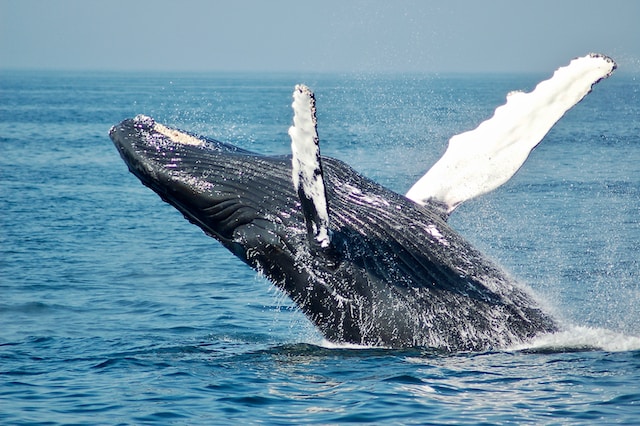Introduction: Whales, as the largest creatures on Earth, play a vital role in maintaining the delicate balance of marine ecosystems. From their impact on nutrient distribution to their influence on prey populations, these majestic creatures contribute to the health and vitality of our oceans. In this article, we explore the crucial role of whales in
Introduction: Whales, as the largest creatures on Earth, play a vital role in maintaining the delicate balance of marine ecosystems. From their impact on nutrient distribution to their influence on prey populations, these majestic creatures contribute to the health and vitality of our oceans. In this article, we explore the crucial role of whales in marine ecosystems and the importance of their conservation and preservation for the well-being of our planet.
- Nutrient Cycling and Ocean Productivity: Whales are known as “ecosystem engineers” due to their profound impact on nutrient cycling. When whales feed near the ocean’s surface, they consume large quantities of prey, including krill and fish. As they dive to deeper depths, they defecate, releasing nutrient-rich fecal plumes that rise to the surface. These plumes enhance the productivity of phytoplankton, microscopic plants at the base of the marine food chain. Increased phytoplankton growth, fueled by whale-derived nutrients, supports the entire ecosystem, benefiting organisms from tiny zooplankton to large fish.
- Trophic Cascades and Prey Control: Whales occupy the upper levels of the marine food chain, and their presence can trigger trophic cascades, which are powerful ecological interactions that reverberate throughout the ecosystem. By consuming large quantities of prey, whales regulate prey populations, preventing their overabundance and maintaining ecosystem balance. This prey control has far-reaching effects, influencing the distribution and behavior of lower trophic levels and shaping the abundance of species throughout the food web.
- Carbon Sequestration and Climate Regulation: Whales have a remarkable capacity for carbon sequestration, a process that helps mitigate climate change. When whales die naturally, their bodies sink to the ocean floor, carrying with them vast amounts of carbon in the form of organic matter. This carbon can remain sequestered for centuries or even millennia, helping to reduce the carbon dioxide levels in the atmosphere. Protecting whale populations is thus crucial for maintaining this important carbon sink, contributing to climate regulation and the preservation of our planet.
- Whale-Watching and Ecotourism: Whale-watching has emerged as a popular and sustainable form of ecotourism, benefiting local communities and fostering conservation efforts. Responsible whale-watching practices can provide economic incentives for protecting whale habitats and populations, encouraging the preservation of critical marine ecosystems. By raising public awareness and appreciation for whales, these activities also promote conservation efforts and inspire a deeper sense of stewardship for the marine environment.
Conclusion: Whales are not merely magnificent creatures that grace our oceans with their presence. They are essential actors in marine ecosystems, playing a significant role in nutrient cycling, trophic cascades, carbon sequestration, and climate regulation. As we recognize the profound impact of whales on the health of our planet, it becomes imperative to prioritize their conservation and preservation. By protecting their habitats, mitigating threats such as pollution and ship strikes, and promoting responsible tourism practices, we can ensure the continued existence of these oceanic giants and safeguard the ecological balance upon which we all depend. Preserving the role of whales in marine ecosystems is a shared responsibility—one that will yield immeasurable benefits for the health and sustainability of our oceans and the entire planet.

















Leave a Comment
Your email address will not be published. Required fields are marked with *